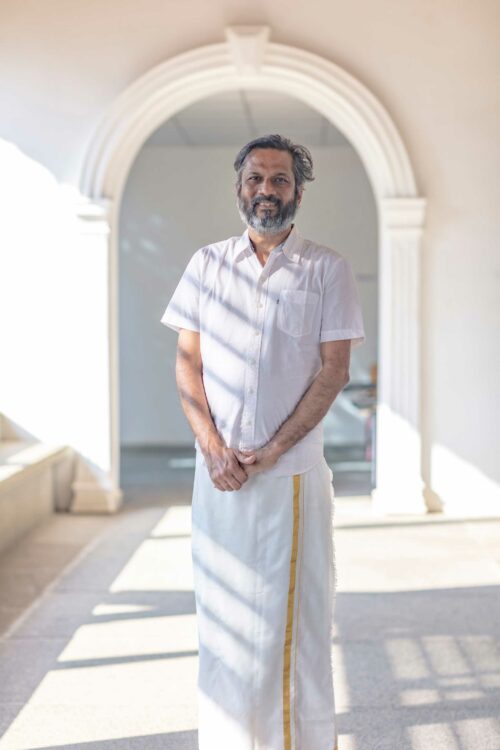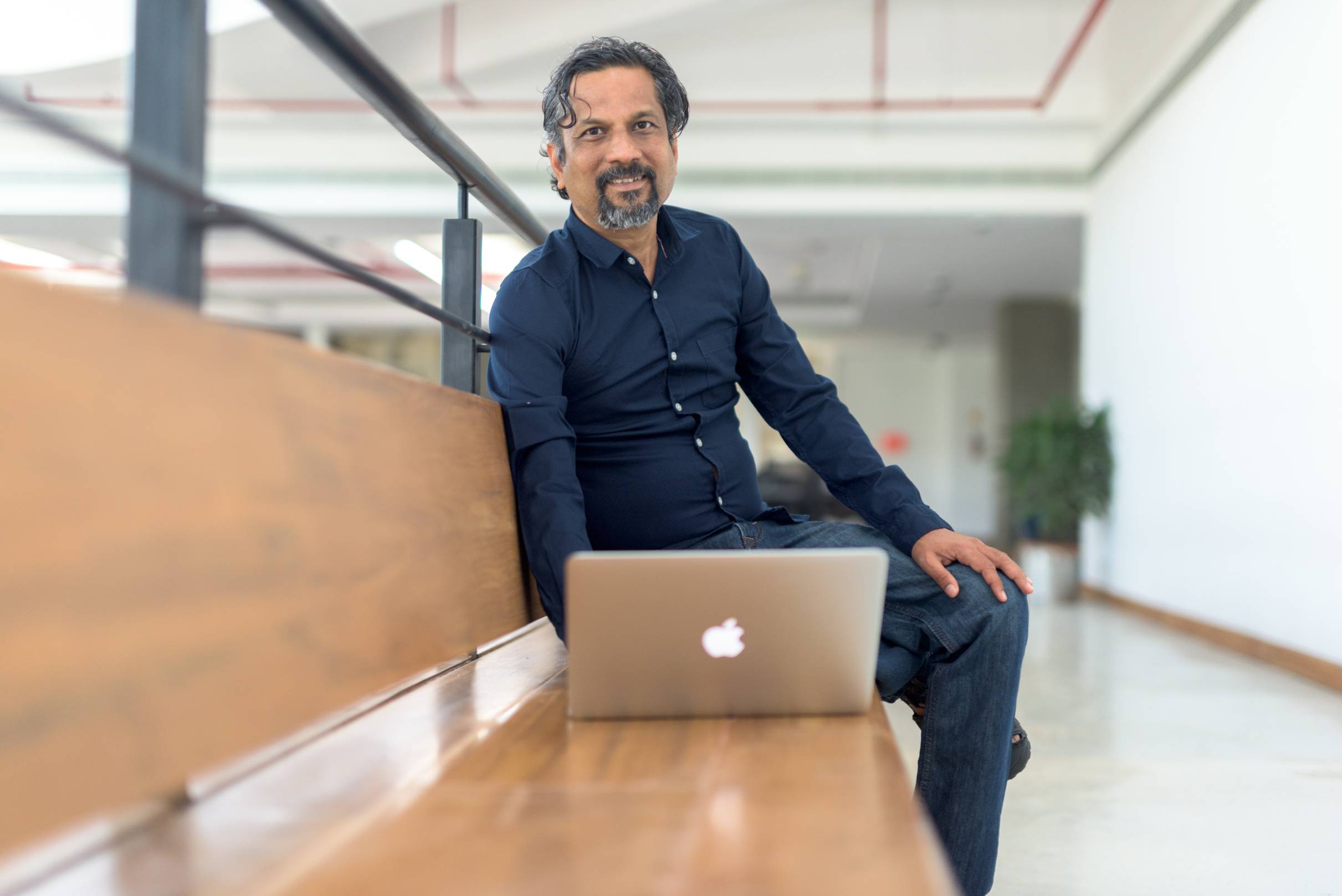A Billionaire Who Left the US to Help Indian Villages Make Software for the World
Meet Sridhar Vembu — billionaire, tech entrepreneur, and Padma Shri awardee. In his interview with The Better India, he shares why he moved operations of his software development company, Zoho, to rural India

Billionaire; one of India’s richest men; tech entrepreneur; self-made man; Padma Shri awardee — perhaps you have heard of Sridhar Vembu (54) by one of the above descriptions. Though, when you speak to him, you are struck by his genuine nature.
Despite being clearly unwell Sridhar didn’t reschedule our call and spoke with courtesy and patience, simply because he had made a commitment.
Adding ‘trailblazer’ to the above list of adjectives for Sridhar seems appropriate here because while most businesses are looking to set up offices in metros like Mumbai and Bangalore to attract talent, he decided to set up shop in the hinterlands.

He has set up Zoho offices in two rural centers in India—one in Tenkasi, Tamil Nadu, and the other in Renigunta in Andhra Pradesh—with 7000 of its employees working out of these offices.
Zoho Corp is a web-based online office suite containing word processing, spreadsheets, presentations, databases, note-taking, wikis, web conferencing, customer relationship management, project management, invoicing and other applications. In addition it also has schools and vocational centres as a part of its conglomerate. His long-term plan is to have many more of its 8,800 India-based employees working out of “non-urban India”.
While much has been written about his story, some aspects of the way he thinks about business, economy, and development is quite differentiated. Excerpts from the interview.
Q – Was your decision to move business to the hinterland spurred by ‘business’ or ‘emotional’ reasons, especially since connectivity, a decade ago, was not like what it is today?
A – It’s been a mix of both. I have always felt that in the long term, urban areas are increasingly unviable from a quality of life and cost of living perspective. That for me was a push factor out of urban areas. One of the things that tends to happen is that people fail to look for solutions, but seem eager to complain. Overcrowded cities, pollution issues, and yet people seem to throng to the cities.
I knew I didn’t want to contribute to making the cities unliveable.

You come to the rural areas and you immediately get drawn to the space and pollution free atmosphere it provides. So, there’s a push and pull factor – push to move away from cities and pull towards hinterland. I set up operations in Tenkasi almost a decade ago, which was a very carefully studied decision. By 2019 I decided to massively expand this set-up and was also considering freezing the headcount in Chennai and moving to other smaller offices. The COVID-19 pandemic in a way only accelerated this thought process.
Q – While you revolutionised employment, given that you had the opportunity to study abroad, what in your opinion can be done about the current education system in India?
A – In our entire system, we look down upon manufacturing and that is something that needs to change. Because of this disdain, even something as small as a nail cutter is something that we do not have the know-how to make. At the school level and even business level we need to lay a lot of emphasis on learning these basics. Practical, implementable things are what we are looking to teach at our schools at Zoho. Most kids will tell you that they do not enjoy the current system that they are forced to be in, and that’s all the more reason why this needs to be changed.
While parents acknowledge this flaw, no one is willing to break out of that mould either. So, it’s a catch-22 situation. Change, I believe, will not come from the middle class but from those in India’s hinterland. A rural school start-up that will provide free education and food, and one that does not believe in marks, degrees or any certificates is what I am seeking to create.
Q – What can be done to ensure self-sufficiency in villages – such that people refrain from migrating to urban areas?
A – There will always be some amount of migration and the question we need to ask is — how can we curb mass migration? There is enough infrastructure in rural India to support the quality of life that one might seek. There is also enough population within a 20km radius to have all the top-class infrastructure and services that are available in urban centres. The problem is the lack of vision. With disposable income will come the establishment of all the services that one can get in the cities. In the kind of economic development scenario, I envision, the reasons why people tend to migrate tend to go away over a period of time.
Q – Could you speak about some of the challenges and opportunities that one is likely to face when starting a business?
A – Honestly, there wasn’t such a big challenge in starting the business or the school. The bigger challenge is to have the boldness to pursue the path you set out on. What I’m trying to do now is take a model of education that has worked elsewhere and fine-tune it to suit the needs of India. The idea is to work towards self-reliance. Take a very small part of a large machine as an example. We should be able to produce it ourselves without giving any excuses. Figure out everything that is needed to make that part and stick to it for a few years to be able to do it very well.
Be consistent and stay the course. As entrepreneurs, we need to start thinking like makers and not just vendors. We need to get down and be able to do the work ourselves.
(Edited by Yoshita Rao)
If you found our stories insightful, informative, or even just enjoyable, we invite you to consider making a voluntary payment to support the work we do at The Better India. Your contribution helps us continue producing quality content that educates, inspires, and drives positive change.
Choose one of the payment options below for your contribution-
By paying for the stories you value, you directly contribute to sustaining our efforts focused on making a difference in the world. Together, let’s ensure that impactful stories continue to be told and shared, enriching lives and communities alike.
Thank you for your support. Here are some frequently asked questions you might find helpful to know why you are contributing?


This story made me
-
97
-
121
-
89
-
167













